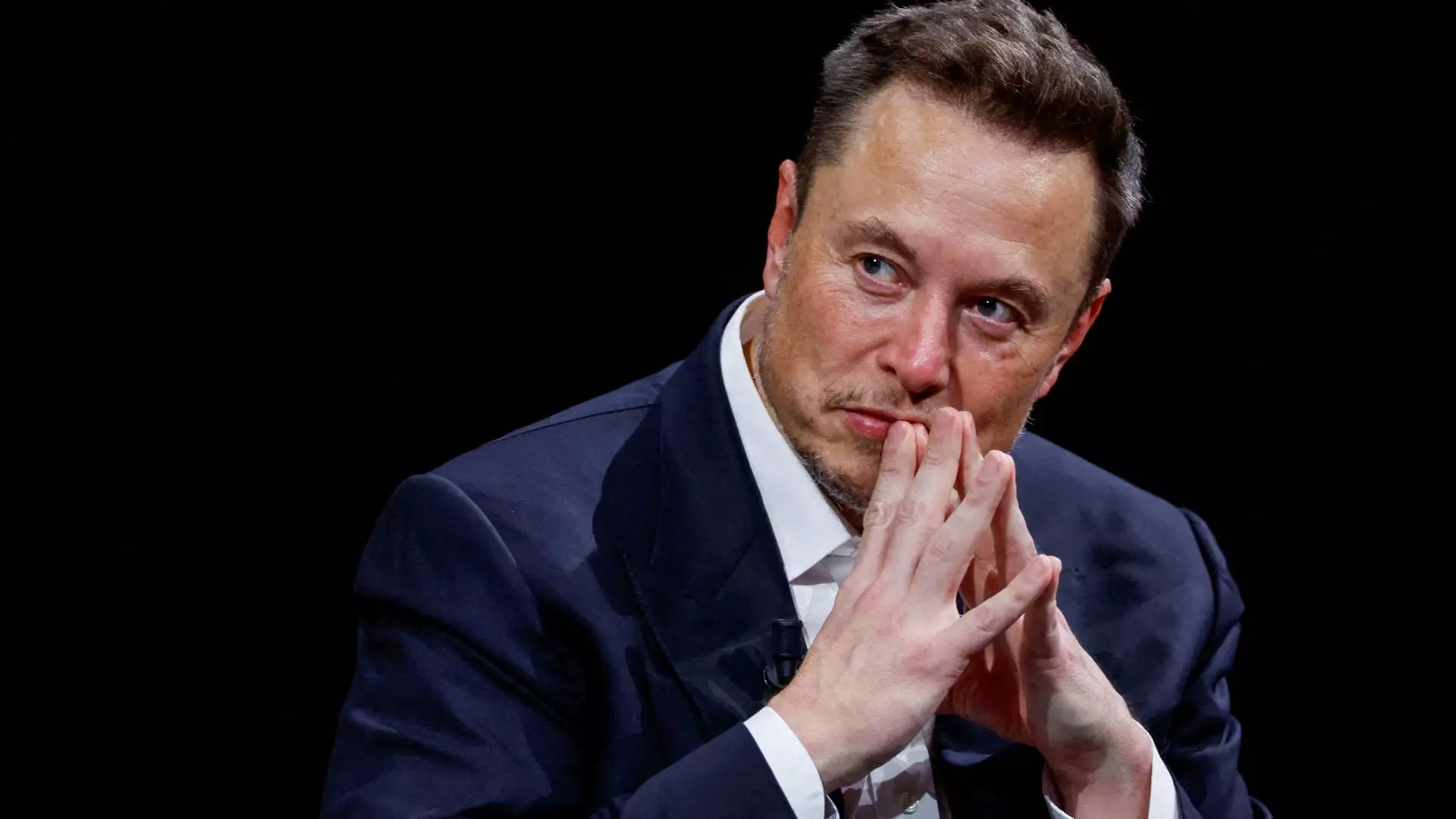Elon Musk’s recent windfall at Tesla is more than just a personal financial bonus; it symbolizes a broader trend of corporate greed masquerading as visionary leadership. Awarding Musk an interim package of 96 million shares, valued at an astronomical $29 billion, exemplifies how top executives continue to manipulate their positions for personal gain at the expense of shareholders and societal interests. What’s particularly troubling is the conditional nature of this award—an incentive tethered not just to continued leadership but also entangled in legal uncertainties stemming from past compensation disputes. This raises critical questions about corporate governance and the priorities of those who sit on Tesla’s board. Are they truly acting in the best interest of shareholders, or are they willing to compromise transparency and accountability in pursuit of Musk’s singular vision? Such moves reflect a disturbing trend of consolidating power among a small leadership elite, dangerously blurring the lines between corporate stewardship and personal empire-building.
The Power Dynamics of Musk’s Control and Its Dangers
The controversy surrounding Musk’s control over Tesla is a glaring example of how concentrated influence can distort corporate decision-making. Holding approximately 13% of Tesla’s shares, Musk wields disproportionate influence over the company’s direction, which is a double-edged sword. While that level of ownership can theoretically align his incentives with long-term growth, the reality is often different. Musk’s vocal and sometimes contradictory political and ideological pursuits have begun to reshape Tesla’s reputation, especially in key markets like the U.S. and Europe. His active engagement outside Tesla—forming new companies such as xAI and pushing into AI and robotics—further complicates his role as a CEO. Rather than acting solely as a corporate leader, Musk appears to be building a personal brand that intersects with his political ambitions, personal interests, and entrepreneurial ventures. This fragmentation of focus inevitably dilutes Tesla’s core purpose, threatens shareholder value, and raises questions about whether Tesla’s board is truly capable of reigning in Musk’s unilateral decision-making.
Legal Battles and Political Alignments: Eroding Trust and Stability
Musk’s ongoing legal conflicts, including the Delaware court ruling criticizing his 2018 compensation plan, reveal a troubling pattern of regulatory and shareholder oversight being sidestepped or manipulated. The court’s decision—highlighting that Tesla’s board intentionally withheld critical information—exposes a flaw in corporate governance structures that should safeguard against such transgressions. Instead of fostering transparency, Musk launched an aggressive campaign against Delaware’s legal system, moving Tesla’s incorporation to Texas and undermining established legal norms. His political maneuvers—such as actively supporting Trump and working within the federal government—further fracture the public’s trust. Tesla’s recent earnings slump, amid declining sales and waning EV credits, indicates that Musk’s focus on personal power and political influence may be damaging the company’s operational effectiveness and public image. The prioritization of personal ambitions over sustainable corporate growth and societal benefit is a dangerous path for a company that has historically been hailed as an innovation leader.
Whose Interests Are Truly Being Served?
What emerges from Musk’s recent actions is a portrait of a leader seemingly more interested in expanding his influence rather than advancing Tesla’s mission of sustainable transportation. His reluctance to focus solely on Tesla’s growth, evidenced by his formation of multiple outside ventures and political endeavors, suggests a shift from collective corporate stewardship towards individual empire-building. His statements about needing significant control to lead AI initiatives and robotics underscore the importance he places on power rather than technological responsibility or societal benefit. The lack of clear boundaries between his various pursuits threatens not only Tesla’s internal cohesion but also raises fears about monopolistic power over emerging technologies. This pattern underscores a broader concern within the center-left liberal perspective: that unchecked corporate dominance and personal ventures carried out with little oversight could exacerbate issues of inequality, corporate accountability, and responsible innovation. For Tesla’s future, a recalibration that emphasizes transparency, responsible leadership, and shareholder interests is long overdue.


Leave a Reply